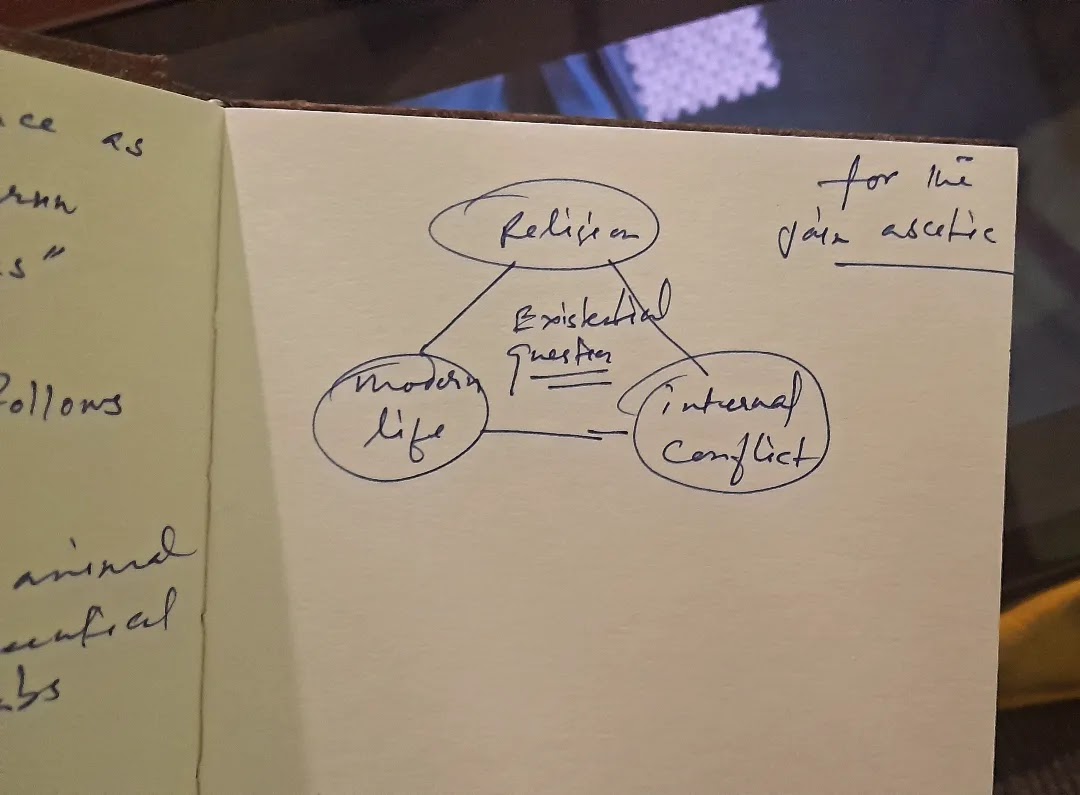The section delves into the story of an ailing monk, portrayed by Neeraj Kabi. This character is dedicated to animal activism, fighting a lawsuit for captive pharmaceutical lab animals, believing in the equality of all existence. Staunchly refusing medicine from pharmaceutical companies that torture animals, especially when facing liver cirrhosis, he reveals his philosophy through dynamic, fast-paced philosophical discussions with a young lawyer. In these conversations, he articulates his atheism and emphasizes his belief in the law of causality and personal responsibility.
Within the movie, Neeraj adheres strictly to the Jain Swatamvarik lifestyle, scavenging on fallen fruits, saving a caterpillar from hustling boots near the court (the first image showing his empathetic nature in the film) and submitting to an unknown disease in accordance with his religion. The film's title, "Ship of Theseus," serves as a poignant analogy, shedding light on the unfolding implications of his journey. At the brink of his deathbed, he eventually yields to the doctor's advice. The film masterfully orchestrates the tragic entropy unraveling on this man's body, leaving him exposed and vulnerable, encapsulating the profound themes embedded in the Ship of Theseus.
The Ship of Theseus is a philosophical and thought experiment that raises questions about identity and change. The analogy involves a ship whose individual parts are gradually replaced over time until none of the original parts remain. The question then arises: Is the fully restored ship still the same entity as the original one? In the context of the film "Ship of Theseus," the analogy likely symbolizes the transformative journey of its characters!
Wonderful cinematography by Pankaj Kumar, who has worked on films like Haider, Talvar, and Tumbbad later in his career.






